Most of us would not have much trouble picking the noise of a screeching power steering pump belt or the horrible noise of a pump that’s low on fluid, but some steering related noises can be trickier to diagnose.
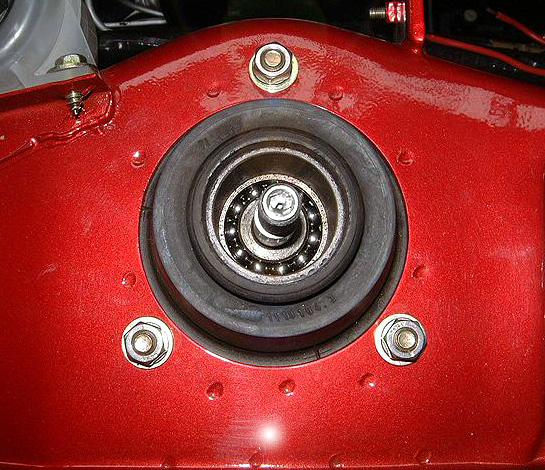
Upper strut bearing
Maybe you are getting a cracking or grinding noise which could be caused by upper strut bearings? Maybe it only happens during slow speed manouvering? Maybe you’ve got issues with stabiliser bar link pins?
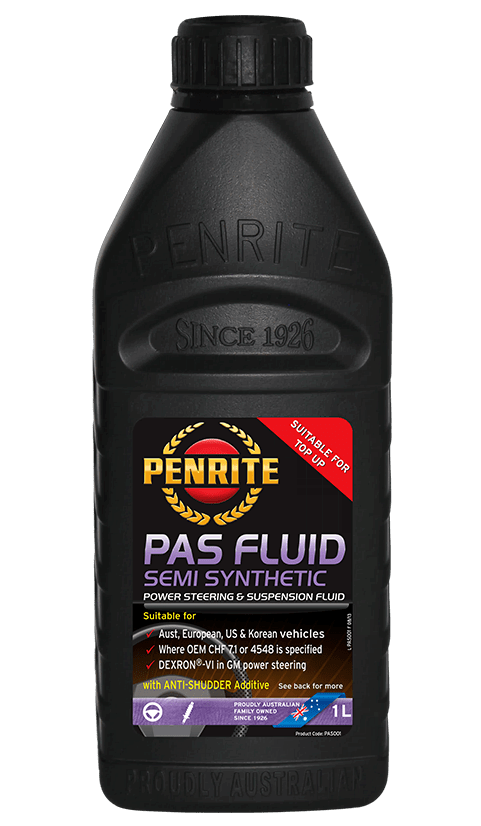
Wrong Fluid
Years ago, using ATF was common-place in power steering systems, however today it is critical to use only the power steering fluid specified for the vehicle. You can find the correct Penrite lubricants for a vehicle by using the Penrite Product Selector or the Penrite Netlube App
Using the wrong fluid can cause all sorts of issues including aeration of the fluid, drivability issues and even seal damage. Using a ‘one-type-suits-all’ fluid does also not always guarantee proper system operation. Like engine oils, power steering fluid can be both mineral and synthetic and include a number of additives and friction modifiers.
It should also go without saying that it is not advisable to mix power steering fluid types. If the incorrect fluid has been used, the entire system should be flushed and then filled and bled with the correct specification fluid. In most cases, successful bleeding can be achieved by turning the steering from lock to lock multiple times, however some vehicles require special procedures to suitably bleed the hydraulic system.
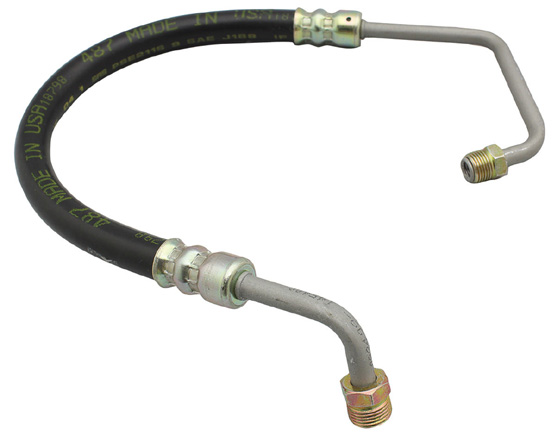
Replacement Hoses
While this one may seem a little less obvious, inferior replacement power steering hoses and lines can often introduce unwanted harmonics into the power steering system so be sure to use quality OE or OE equivalent hose or lines.
Also remember that the high pressure lines and hoses can vibrate under load and introduce strange noises to a vehicle if making contact with body panels so ensure all saddles, clips and dampers are secured correctly upon replacement.
A damaged fluid return line can also cause aeration of fluid and noise in the event it is allowing air to be sucked into the system.
To adequately pressure test the power steering fluid return system, ensure the fluid is at operating temperature and pressurise the system with up to 10psi of compressed air (with the engine off) and inspect for leaks.
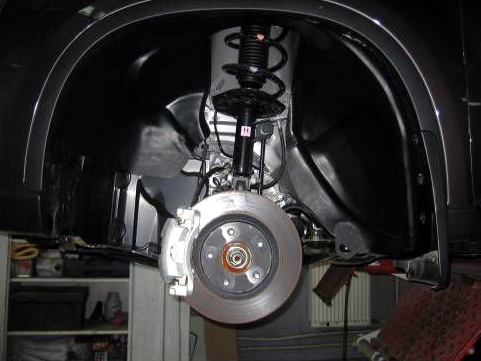
Brakes and Hubs
Whilst a less likely culprit, unsecured unsprung components like brake calipers can cause noise when turning if there are loose components present, so be sure to carry out a thorough underbody inspection before condemning the steering gear.
If your customer complains of a growling or rumbling noise that gets worse when turning, don't forget possible hub failure. This may also be accompanied by vibration or excessive play in the steering wheel.
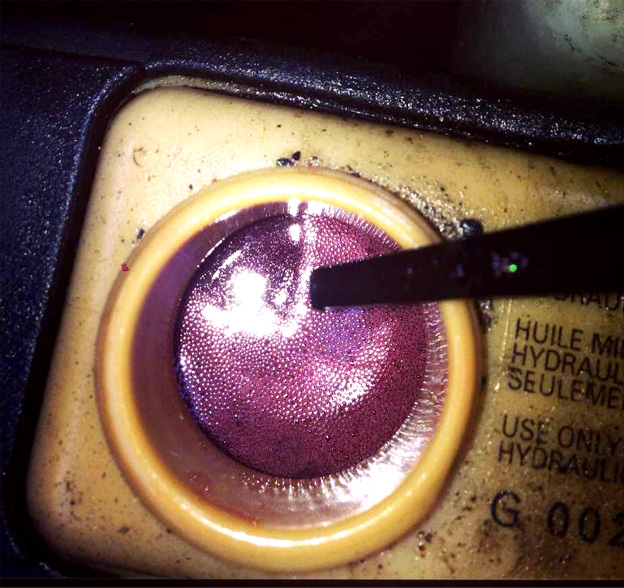
Power Steering Fluid Quality
Don't forget fluid quality! Power Steering fluid does not have to be black and stinky to cause driveability issues, if in doubt, carry out a thorough flush of the system.
If difficulty is experienced bleeding a system, a vacuum tool may be used to address the problem. Fill the reservoir and insert the vacuum tool’s rubber stopper into the reservoir filler neck. With the engine running at idle, apply approximately 20”Hg of vacuum to the reservoir. Turn the steering wheel from lock to lock repeatedly until the issue resolves. Be sure to recheck and adjust the fluid level afterwards.
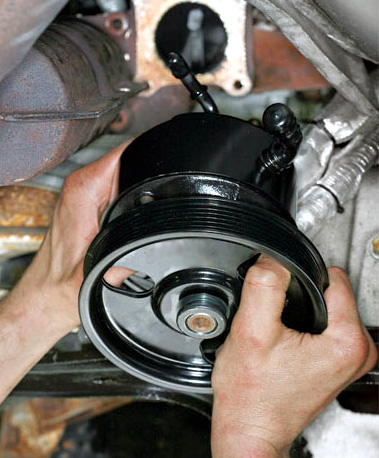
Pump misdiagnosis
Don’t automatically assume that a noise is caused by the power steering pump. A noise that seems to be coming from the power steering pump might not be a pump issue, as it might be created by a failed alternator bearing or similar. Always be sure to isolate the problem before ordering parts or quoting on a repair.
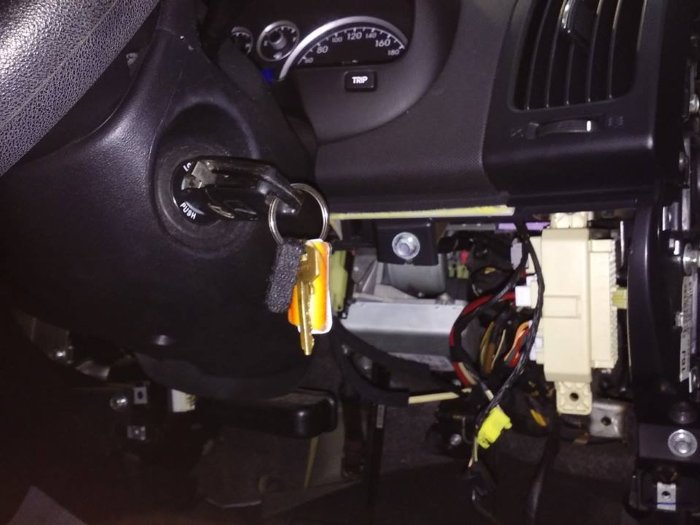
Steering Column
Ensure that the complaint is not coming from the steering column or associated components such as an Electronic Power Steering or Assist system like the symptom in the recent Kia/Hyundai Bush Replacement Article.
For a quick reference guide to potential Problems and Causes, refer to the guide below
CONDITION
Noise from Power Steering system on cold start.
CAUSE
Blockage caused by contamination in the lines or reservoir or air in the system.
CONDITION
Steering shudders when turning wheel at low speeds.
CAUSE
This may be caused by air in the power steering fluid circuit, incorrect fluid, deteriorating system hoses or steering gear wear.
CONDITION
Power steering pump moan/humming sound when the steering wheel is turned to a stop position.
CAUSE
Possible low fluid level, air in the system, insufficient fluid flow due to reservoir or screen blockage, power steering line or hose grounded to the chassis, or steering gear isolator damage.
CONDITION
Clunkin noise in steering gear when driving over a bump.
CAUSE
Steering gear wear or steering gear mounting may be loose.
CONDITION
Belt squealing or chirping when turning the steering wheel from lock to lock.
CAUSE
Belt tension, glazing, misalignment, pulley damage or mis-alignment or worn belt tensioner.
CONDITION
Power steering hiss or whistle noise.
CAUSE
Steering column shaft or coupling bind or misalignment. Also check for a loose steering column bracket, damaged or worn steering gear input shaft and valve wear or restricted power steering lines/hoses. This could also be caused by a noisy valve in the power steering gear.
CONDITION
Rattle or clunk noise.
CAUSE
Check for loose column brackets and fasteners, worn, loose or dry column bearings, worn or damaged steering shaft insulators, or a compressed or extended steering column shaft/coupling. Also check for a loose power steering gear, loose front suspension crossmember mountings, loose tie rods, loose strut assembly mounting, power steering fluid pressure hose contacting the body, or damaged power steering gear.
CONDITION
Squeak or rubbing noise.
CAUSE
Incorrect power steering fluid for the vehicle (for example, using ATF instead of power steering fluid). Also check for bad steering gear seals. Another possibility may be a bent or improperly positioned steering shaft shield or rubbing steering column shaft.
CONDITION
Steering column squeaking/grinding.
CAUSE
Dry steering shaft bushings, loose or misaligned column shrouds, upper or lower bearing sleeves out of position.
CONDITION
Power steering pump whine or growl noise.
CAUSE
Low power steering fluid level, aerated power steering fluid. Check for fluid leaks and purge system. Possible worn power steering pump.
CONDITION
Scrubbing/knocking noise.
CAUSE
Steering gear contacting adjacent components, worn steering gear internal stops.